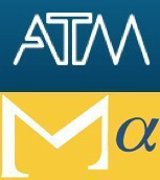I think this is an excellent idea. We need a strong body with expertise and an independent voice to champion maths in schools, now more than ever before. Membership is likely to increase which would have a positive impact on the subject knowledge of teachers. It is not helpful at the moment that membership is split between the two largest organisations - the Association of Teachers of Mathematics (ATM) and the Maths Association (MA).
I would encourage all primary teachers to join the ATM. Their regular Mathematics Teaching journal has some interesting contributions and articles, their classroom resources and books are excellent and the conference is always worth attending.
The same can be said for the MA – a very important association for maths teaching and learning that has increased its primary maths focus over the years. My own subject knowledge has been enhanced through many years of membership of the MA and I think all subject leaders of mathematics should be members.
A problem we have is that there are two strong associations that teachers are asked to join and many do not. Perhaps they cannot choose between them or doubling costs is prohibitive. Membership is falling in both associations and this does need to be reversed. There are three other organisations on offer as well: The Association of Mathematics Education Teachers (AMET), the National Association of Mathematics Advisers (NAMA), and the National Association for Numeracy and Mathematics in Colleges (NANAMIC). There are a lot of acronyms to deal with!
NCETM is a government funded body and therefore it is even more important that we have independent views on the teaching of mathematics. This is from Sue Pope’s excellent article from Mathematics Teaching back in 2012:
The ATM has some excellent publications on offer and I recently bought Mike Ollerton’s new collection of problem-solving starting points, Pick and Mix: Mathematical Challenges for a KS2 classroom.
Mike always has great ideas for getting children to explore maths and his style of writing is accessible and clear to follow. These are around 100 simple starting points that are a mix of old favourites (often with a twist) or new ideas to motivate children and teachers to challenge themselves - I highly recommend it.
Clearly the proliferation of associations concerned with mathematics education in schools and the establishment of the National Centre for Excellence in Teaching Mathematics (NCETM), following Smith's recommendations in 2001, have not helped with recruitment.
I believe NCTEM could have helped a great deal more had it acted as a conduit to subject associations rather than establishing itself as a one-stop shop for teachers. Whilst there are many valuable resources and facilities on the NCETM portal, publishing regular magazines for primary and secondary mathematics undermines the subject associations' publications. Many teachers do not appreciate that NCETM is a government-funded initiative, whilst subject associations are independent organizations.
Sue Pope suggests that the Association of Science Education (ASE) is a strong advocate for primary science teaching because there is a single body for teachers to join and that perhaps maths could benefit in the same way. The ASE is the largest subject association in the UK, which is something that a unified ‘Association of Maths Education’ should aspire to (and should easily surpass).
There is already a joint ATM/MA Primary committee that is active and works together to provide advice to teachers and represent an independent view when responding to DfE statements or reports. The ATM and MA have a rich history (read Sue Pope’s article for this) so it may seem to be a step too far for them to amalgamate, but something needs to be done to attract teachers back into becoming active members of a subject association of the importance of mathematics.



